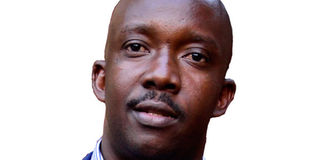We need a national assessment policy to deal with PLE

Patrick Kaboyo
What you need to know:
- Transform. Good education should be able to transform a learner from a mere consumer of the very education into a productive citizen.
- Sports and talent exercised by many which is now a provider of buttered bread to many households through music, sports, the arts be it creative, literary or visual need to be brought to the discussion table.
Watching the recent Confederation of African Football awards in Accra, Ghana, I was surprised. Firstly, there was no mention of any East African individuals or teams to be awarded. Secondly, the night’s hosts, Didier Drogba and Carol Shabalala exuded talent and celebrity status that matched the occasion with a sting at the East Africans.
I reflected on the duo’s linguistic prowess that lived to the billing of the occasion. Later, my mind only clung to Dr Ronnie Mitch Egwang, who in my analysis, could sustain such humorous emceeing stints in a Francophone territory. Alas! If my daughter, a student at Trinity College Nabbingo, had not gone for holiday in Kigali, I would have asked her for a translation, while I watched the awesome duo emcee.
Wow! Swiftly, I recalled, Dr Mitch went to Namasagali. He’s not a product of Universal Primary Education (UPE). My daughter, on the other hand, started her education in Taibah International School. So, I burst in reflection again. Later, I remembered that my primary school teacher used to teach us the saying, “You reap what you sow.”
In summary, I reminisced the abundance of untapped talent that Uganda and East Africa in general have, but remain at the peripheral of most of the continent’s lucrative opportunities. Finally, I came to terms that the Ministry of Education and Sports has not only got to focus on education alone but urgently shift its focus to sports and nurturing talent in equal measure. It is high time we embraced a paradigm shift to rebrand what we baptised co-curricular even when it is the biggest employer of many, across the world.
Sports and talent exercised by many which is now a provider of buttered bread to many households through music, sports, the arts be it creative, literary or visual need to be brought to the discussion table.
Even though Uganda’s young boys and girls sit national examinations, they are not supported to live their dreams as communicated when they are interviewed on radio or television. “I want to become a doctor.”
“I want to become a pharmacist.” “I want to become an engineer.” They retort. Not only do they just dream, they dream big. A good education system ought to be designed to help learners achieve their desired dreams.
Through correct and relevant assessment, learners can achieve their dreams but not through Primary Leaving Exams (PLE) as it is today.
The current PLE is cognitive focused and deficient of assessing the psychomotor and the affective domain. This anomaly is reflected in Uganda’s current rampant unemployment, unethical conduct like cheating of examinations, rigging elections, telling lies and the prevalence of both grand and petty corruption cases that the country is grappling with.
While it is true that a good education should offer value for money and return on investment, few of the parents today can attest to the fact that the money they have invested on their boys and girls for seven years offers the country productivity and economic dividends equal to the investment made.
The cost benefit analysis of educating a boy or girl for seven years in either a private or public school needs to be brought to the fore in the education financing discourse. Good education should be able to transform a learner from a mere consumer of the very education into a productive, analytical, critical thinker and creative citizen.
Unfortunately, much as many of us continue to invest in our children with the current model of assessment, little can be linked to productivity of PLE graduates at individual and community level and to the economy.
With an enviable numerical strength that is a constant, the education sector enjoys a wide stakeholder base that most times does not contribute to its framework because of poor consultation.
The assessment policy we want, if well designed, robustly discussed and collectively owned will save the country from individual hidden interests, agenda and intricacies associated with the current model of assessment that does not focus on continuous assessment for learning and of learning. The policy on assessment should be in place to address learner needs at all levels of education.
Mr Kaboyo is a leader in Uganda’s private education sector.
[email protected]




